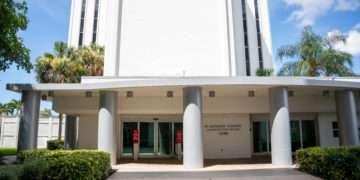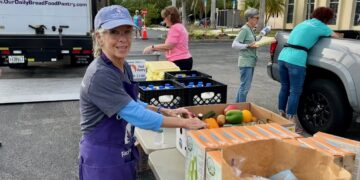It’s widely recognized that Southwest Florida’s economy continues to thrive in many of its industries, and that has translated into momentum for a variety of companies and entrepreneurs to grow.
An estimated 48 percent of small businesses reported being in a better position than they were six months ago, according to the September 2015 Florida Chamber Small Business Index Survey, released in conjunction with the Florida SBDC Network.
But that doesn’t mean it’s time to coast—far from it. Savvy businesses know that now is the time to keep expanding upon growth by tweaking or transforming the brand, messaging and products to attract new consumer groups.
If you’re wondering which markets are ripe for trade expansion, here are five you should pursue.
Senior Health Care and Housing

WHY IT’S HOT: Florida already is one of the “oldest” states in the nation, with its 41.6 median age exceeding that for the United States (37.8), and the Sunshine State will continue aging over the next 25 years, according to a report by the University of Florida Bureau of Economic and Business Research (BEBR). Service providers and decision-makers in health care, emergency services and housing need to be prepared for the influx of residents ages 60 and up. By 2030, that population group will increase in Southwest Florida by 119,554. The median age is expected to creep even higher in Southwest Florida, reaching 50 in Collier County and 60 in Charlotte County.
More seniors create a bigger demand for housing communities with medical amenities and transportation, and even luxury care providers, such as doctors on call and concierge medicine.
HOW TO DO IT: The growing aging population continues to present a rich opportunity for developers, homebuilders and remodelers. Retirees with a substantial or even moderate amount of wealth will pay for housing with medical amenities, and there are opportunities to retrofit existing housing for aging in place, says Jerry D. Parrish, chief economist and director of research for the Florida Chamber Foundation. Baby boomers want proximity to medical facilities and communities with a focus on health and sustainability, according to RCLCO, a Washington, D.C.-based real estate advisory firm, in a 2014 presentation to the Association of Florida Community Developers.
“It will be the communities that will be able to provide health care, provide transportation and provide good quality of life. Those will be popular and increase all over the state of Florida, but especially in this area of Southwest Florida where you see the higher increase in the aging population,” Parrish says.
Gen Z

WHY IT’S HOT: Don’t forget the under-19 age group, which is growing in Southwest Florida as its purchasing power is ramping up. The Gen Z market, born from 1998 on and estimated at 60 million people in the U.S., is expected to comprise 40 percent of the U.S. population by 2020. Gen Z already contributes about $44 billion to the nation’s economy—based on the average weekly allowance of $16.90—according to a report by New York advertising agency Sparks & Honey. And many of them want to start their own businesses, meaning it’s an area where Southwest Florida can continue to capitalize on its entrepreneurial spirit.
To get an idea of the market for Gen Z (and beyond), the number of kids, ’tweens and teens is expected to grow by 40,883 in Lee County and 15,614 in Collier County from 2015-2030, according to projections by the University of Florida BEBR.
HOW TO DO IT: Companies have to be savvy in marketing to the Gen Z buyer, who is more digitally driven than other consumers. They’re more apt to watch product reviews on apps such as YouTube before adding an item to their Christmas list. Even those without a smartphone expect instant access and information, says Kellie Nolan McCartney, managing partner and communications strategist for Brilliant Lens, a strategic branding, social media and creative marketing firm in Fort Myers. Just watch how your kids or grandkids will quickly Google information about a product or a company on your smartphone or tablet.
But don’t rely on Facebook. Gen Z is drawn to apps such as Snapchat, Tumblr and Whisper more than hanging out online with their parents and grandparents on Facebook. Visuals are key, and Minuteman Press in Fort Myers suggests creating visuals, such as infographics and videos—especially with humor—to connect with the Gen Z market.
International Trade

WHY IT’S HOT: Let’s start with the big picture: More than 95 percent of the world’s population and 80 percent of the world’s purchasing power is outside the U.S., according to the U.S. Chamber of Commerce.
In 2014, Florida’s international trade—both imports and exports—totaled $153 billion, supporting 270,473 U.S. jobs, according to the International Trade Administration, U.S. Department of Commerce. Brazil is the largest export market, representing 8.7 percent, or nearly $5.1 billion, of total merchandise exports from Florida, followed by Canada and Colombia.
The majority—actually 95.3 percent—of the 61,489 companies that exported goods from Florida in 2013 were small- and mid-sized businesses. Consumer and electronic products was the biggest export category, representing $14 billion, followed by transportation equipment, chemicals, machinery (except electrical) and primary metals (those derived from ore).
Southwest Florida’s location is expected to open the door for international trade in new ways. The region is less than three hours away, via I-75, from four deep-water ports (Everglades, Manatee, Miami and Tampa Bay), and the dredging of Port Everglades, for example, is expected to make that port more competitive with other Florida ports. The $5.25 billion Panama Canal expansion project— expected to open in 2016—deepens the market for trade and moving cargo in the Caribbean and Latin America, and Florida is already the No. 1 exporter to those areas, according to Enterprise Florida. In addition, our region attracts foreign visitors who often are executives, entrepreneurs and business owners.
HOW TO DO IT: Use the region’s designated Foreign Trade Zones (FTZ), which are federally established areas that provide special customers procedures and savings on taxes and duties to export and import businesses.
Businesses can store, assemble, package, sort, distribute, process, test, manufacture and destroy goods in an FTZ. The Lee County Port Authority is the grantee for the FTZs in Southwest Florida, which includes Southwest Florida International Airport and Page Field, a general aviation facility. There are two in Cape Coral: North Cape Industrial Park and Mid-Cape Industrial Park. The expanding Punta Gorda Airport is another FTZ and the 4,300-acre Punta Gorda Interstate Airport Park offers rapid permitting, roadway improvements and “shovelready certified sites,” according to Charlotte County Economic Development. Immokalee Regional Airport, located 110 miles northwest of the Port of Miami, is another FTZ, and includes the Florida Tradeport. If you’re interested in exporting, international trade specialists with the Florida Small Business Development Center at Florida Gulf Coast University can assist you and provide resources for determining your next steps and identifying possible markets.
Connecting with those spending time in Southwest Florida who own companies in other countries could lead to export opportunities or new relationships in other parts of the world.
Spanish-speaking Consumers

WHY IT’S HOT: More than 20 percent of residents in the five-county region are Hispanic. While some left during the housing market collapse and recession to look for work elsewhere, they are returning and more are expected in the next 15 years. By 2030, the Hispanic population is expected to reach 135,763 (up from 95,251 now) in Collier and 244,864 in Lee (139,919 now).
“Family members will tell their family members that there’s work down in Florida,” says Julio Estremera, a certified business analyst at the Small Business Development Center at FGCU. “They’ll come back.”
HOW TO DO IT: Getting to know the Hispanic culture and language is vital. To do so, be present and even consider sponsoring or being a vendor at events, such as festivals, cultural activities and networking events that draw Spanish-speaking crowds. The Southwest Florida Hispanic Chamber of Commerce and The Pendás Law Firm are hosting Viva Cape Coral, a free annual cultural festival, on Jan. 16. Vendor and sponsorship opportunities are available for the downtown Cape Coral event.
“If you want to sell your services and products, you have to at least reach out to them and let them know what it is you have to offer,” says Estremera, a Hispanic Chamber board member. “If you don’t reach out to them and the Hispanic person feels like it’s a place where they’re not going to be welcome, they are not going to patronize the business.”
Make your company welcome to consumers by hiring people who are bilingual. Business owners also need to introduce themselves to build a relationship with potentially repeat customers.
“The owner needs to be out there. You need to welcome the client. Try to find out what their needs are,” he says.
Target advertising on Spanish-speaking television and radio stations. Estremera points out that the Fuccillo Kia ads are “huge” with this market because they hire Hispanic talent and give the message in Spanish (ads also say “¡Hablamos Espanol!”).
Also, nationwide, 20 percent of millennials are of Hispanic origin, so businesses should keep millennials in mind with their messages and products.
Government Procurement

WHY IT’S HOT: “The opportunities are unlimited,” says Dan Telep, a procurement analyst with the Small Business Development Center- Procurement Technical Assistance Center program at Florida Gulf Coast University. “The federal, state, county and city governments purchase all types of products and services.
All types of businesses may pursue contract opportunities.”
Florida ranks No. 5 nationwide in federal contract action, according to FedMine.US, with $14.6 billion in contracts awarded to companies in the state, representing 3.39 percent of the total $430.3 billion awarded in 2014. The state also had the fifth-highest amount—valued at $4.2 billion—of federal contract actions awarded to small businesses.
Leading areas for federal government contracts by Southwest Florida businesses include medical and surgical supplies, leasing facilities, and construction of laboratories and clinics, according to federalspending.org. Health care represents the most promising area for Southwest Florida businesses to contract with the federal government in 2016, Telep says. However, the U.S. Army
Corps of Engineers has projects that could also present opportunities: the Herbert Hoover Dike upgrades near and around Lake Okeechobee in Hendry and Glades counties and the dredging of the Miami harbor to handle the bigger super tankers headed through the expanded Panama Canal.
HOW TO DO IT: When you are thinking about getting a slice of contract work with any government—federal state, county or city—a few steps are critical.
Register at the government website. Go to the Small Business Administration (sba.gov) to register for federal contract bids and the Florida Department of Management Services (dms.myflorida.com) for state business. Contact individual counties for their registration process.
Check out opportunities daily. View work for federal agencies in Florida at fbo.gov. View state of Florida opportunities at dms.myflorida.com. View individual county and city government websites for opportunities, such as leegov.com/procurement/projects. Contact the federal agencies in Florida, state agencies (within myflorida.com) and county and city government contracting offices for agency procurement forecasts for fiscal year 2016 or calendar year 2016.
Know your product or service.
Know your price.
Submit a quote or proposal.
The key to that advice is to register ahead of time. When the hurricane hits is not the time to start the process to sell bottled water to the government, Telep says. Being positioned to sell to a government entity helps even outside a business’s geographic area and area of expertise.
“If a company in Southwest Florida supplies decking, that company is going to be more competitive in Florida,” Telep says. “However, if you see an opportunity to supply a similar product in Washington state, for example, you might team or network with a contractor in that local market who is not registered to bid for government contracts.”
But successful bidders aren’t so narrowly focused on their primary business that they lose opportunity to do something different. For example, a client who harvests and sells fish to private restaurants and government agencies recently contracted to supply a boat to the U.S. Navy.
The client’s primary business wasn’t as a boat manufacturer or dealer, but the company was well-connected to make a bid.
Valerie Childs, owner of SW FL Construction Sales & Services in Bonita Springs, which has received government contracts, recommends being proactive. She suggests scheduling introductory appointments with the heads of departments where you could provide a service or product, as well as attending public meetings, economic development council meetings and “reverse” trade shows to connect with procurement professionals. When you bid on a project, read the bid document thoroughly before submitting yours. GB
Allison Floyd contributed to this story.




